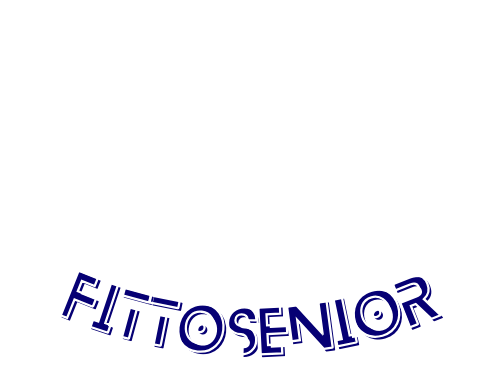Weight management is crucial for seniors as it impacts their overall health and well-being. Tai Chi, an effective and gentle exercise, offers a promising approach to weight loss while providing numerous additional benefits.
Understanding Weight Management for Seniors
Common weight-related challenges among seniors: Seniors often face challenges related to weight gain, such as a slower metabolism, decreased muscle mass, and age-related hormonal changes.
The impact of excess weight on overall health and well-being: Carrying excess weight increases the risk of various health conditions, including heart disease, diabetes, joint problems, and reduced mobility.
The benefits of weight loss for seniors:
Weight loss can lead to improved cardiovascular health, increased energy levels, reduced joint pain, better mobility, and enhanced self-esteem.
What is Tai Chi?
Origins and history of Tai Chi :Tai Chi originated in ancient China as a martial art and has evolved into a practice that promotes physical and mental well-being.
Key principles and philosophy behind Tai Chi:Tai Chi emphasizes slow, controlled movements, deep breathing, relaxation, and mindfulness, aiming to restore balance and harmony within the body.
Tai Chi as a low-impact exercise for seniors: Tai Chi’s gentle and fluid movements make it an ideal exercise for seniors, as it puts minimal stress on the joints while improving flexibility, balance, and coordination.
The Science Behind Tai Chi and Weight Loss
Research studies on the effects of Tai Chi on weight management: Numerous studies have explored the impact of Tai Chi on weight loss, showing positive results in reducing body mass index (BMI) and waist circumference.
Mechanisms by which Tai Chi contributes to weight loss: Tai Chi increases calorie expenditure, builds lean muscle mass, and improves metabolism, contributing to weight loss and improved body composition.
Comparison of Tai Chi with other forms of exercise for weight management: Compared to traditional aerobic exercises, Tai Chi offers a unique combination of physical activity, mindfulness, and stress reduction, making it an attractive option for sustainable weight loss.
How Tai Chi Can Aid Weight Loss for Seniors
Increasing calorie expenditure through Tai Chi practice: The slow, controlled movements of Tai Chi engage various muscle groups, leading to increased calorie burning and improved cardiovascular fitness.
Building lean muscle mass and improving metabolism:
Regular practice of Tai Chi helps seniors build lean muscle mass, which increases metabolism and promotes fat burning even at rest.
Enhancing flexibility, balance, and coordination: Tai Chi movements require flexibility, balance, and coordination, leading to improved body control and efficiency in physical activities.
Reducing stress and emotional eating: Tai Chi’s meditative aspect promotes relaxation, reduces stress levels, and helps seniors manage emotional eating triggers.
Promoting mindfulness and healthy eating habits: Through mindfulness techniques incorporated in Tai Chi, seniors can develop a better relationship with food, make conscious dietary choices, and cultivate healthier eating habits.
Getting Started with Tai Chi for Weight Loss
Finding a reputable Tai Chi instructor or class: Seniors should seek qualified Tai Chi instructors or classes that cater specifically to their needs and goals.
Selecting a Tai Chi style suitable for weight loss: Different Tai Chi styles exist, and seniors can choose a style that combines flowing movements and emphasizes cardiovascular activity for weight loss.
Recommendations for comfortable clothing and equipment: Wearing loose and comfortable clothing allows for unrestricted movement during Tai Chi practice. Seniors may also benefit from appropriate footwear and accessories like supportive shoes or a water bottle.
Precautions and safety tips for seniors starting: Tai Chi
It is important for seniors to consult with their healthcare provider before starting any new exercise program, including Tai Chi. Additionally, they should practice within their comfort zone, take breaks as needed, and listen to their bodies to avoid overexertion or injury.
Tai Chi Techniques and Exercises for Weight Loss
Warm-up exercises and stretching routines: Tai Chi warm-up exercises prepare the body for practice and help prevent injuries. These may include gentle stretches, joint rotations, and loosening exercises.
Tai Chi forms and movements that promote calorie burning: Specific Tai Chi movements, such as the “Grasp Sparrow’s Tail” or the “Wave Hands Like Clouds,” engage the entire body and promote calorie burning, contributing to weight loss.
Engaging core muscles through Tai Chi practice: Tai Chi movements involve the activation of core muscles, leading to improved posture, stability, and abdominal strength.
Incorporating high-intensity intervals into Tai Chi sessions: Seniors can add short bursts of higher intensity movements or incorporate faster-paced transitions between forms to elevate the heart rate and enhance calorie burning during their Tai Chi practice.
Developing a Tai Chi Routine for Weight Loss
Setting realistic goals and tracking progress: Seniors should set achievable weight loss goals and regularly monitor their progress to stay motivated and make adjustments if necessary.
Establishing a regular Tai Chi practice schedule: Consistency is key for weight loss. Seniors should establish a regular Tai Chi practice schedule that works for them, aiming for at least two to three sessions per week.
Combining Tai Chi with cardiovascular exercises for optimal weight loss: To maximize weight loss benefits, seniors can complement their Tai Chi practice with additional cardiovascular exercises like walking, swimming, or cycling.
Modifying the intensity and duration of Tai Chi sessions as fitness improves: As seniors progress in their Tai Chi practice, they can gradually increase the duration or intensity of their sessions to continue challenging their bodies and enhancing weight loss results.
Tai Chi for Mindful Eating and Portion Control
Cultivating mindfulness during meals: Through Tai Chi principles, seniors can cultivate mindfulness during meal times, paying attention to their eating habits, chewing slowly, and savoring each bite.
Applying Tai Chi principles to eating habits: Seniors can apply the principles of Tai Chi, such as relaxation, balance, and moderation, to develop healthier eating habits and a more mindful approach to food.
Practicing mindful portion control and mindful snacking: Tai Chi encourages seniors to listen to their body’s hunger and fullness cues, helping them practice portion control and make mindful choices when snacking.
Incorporating Tai Chi breathing techniques for appetite regulation: Tai Chi breathing techniques can be utilized to regulate appetite and promote a sense of calmness and control during meal times.
Incorporating Tai Chi into Daily Life for Weight Management
Using Tai Chi principles to maintain an active lifestyle: Seniors can apply Tai Chi principles of balance, flexibility, and mindful movement to their everyday activities, promoting an active and healthy lifestyle.
Integrating Tai Chi with other exercises and physical activities: Seniors can complement their Tai Chi practice with other forms of exercise, such as strength training or yoga, to create a well-rounded fitness routine.
Using Tai Chi as a stress management tool to avoid emotional eating: Tai Chi’s calming and stress-reducing effects can help seniors manage stress levels and reduce the likelihood of turning to food for emotional comfort.
Tai Chi as a long-term weight management strategy:
By integrating Tai Chi as a lifelong practice, seniors can maintain their weight loss, enjoy the ongoing health benefits, and prevent weight regain.
Personal Stories and Testimonials
Real-life experiences of seniors who have achieved weight loss through Tai Chi: Sharing success stories and experiences of seniors who have successfully lost weight through Tai Chi can inspire and motivate others to embark on their weight loss journey.
Testimonials from Tai Chi instructors specializing in weight management: Expert testimonials from Tai Chi instructors who specialize in weight management can provide additional insights and credibility to the benefits of Tai Chi for seniors’ weight loss.
Conclusion
Tai Chi offers seniors a gentle yet effective exercise option for weight management. With its numerous physical and mental health benefits, Tai Chi provides a holistic approach to achieving and maintaining a healthy weight. Encouraging seniors to explore Tai Chi as a sustainable and enjoyable exercise can lead to improved overall well-being and long-term weight management success.
FAQs
Yes, Tai Chi can be an effective practice for weight loss among seniors. While it may not result in rapid weight loss like intense cardio workouts, Tai Chi promotes gentle movement, improved balance, muscle toning, and increased metabolism, contributing to gradual weight loss over time.
Absolutely! Tai Chi is suitable for seniors of all fitness levels. Its low-impact nature makes it an ideal exercise for those with limited mobility or joint issues. Tai Chi can be adapted to accommodate individual abilities, allowing everyone to benefit from its weight loss potential.
Consistency is key. Seniors looking to lose weight through Tai Chi should aim for regular practice. Starting with two to three sessions per week, gradually increasing to four or more can help maximize the benefits. It’s essential to listen to your body and adjust the frequency based on your comfort and progress.
Tai Chi can contribute to overall weight loss, including reducing belly fat. While spot reduction is not possible, Tai Chi’s holistic approach to exercise and stress reduction can lead to a gradual decrease in body fat, including the abdominal area.
Weight loss results vary depending on various factors such as individual metabolism, dietary habits, and overall lifestyle. Seniors practicing Tai Chi for weight loss can typically expect to see noticeable changes within a few months of consistent practice. Patience and a long-term commitment to a healthy lifestyle are essential for sustainable results.
Yes, Tai Chi offers numerous health benefits for seniors. It can improve balance and stability, enhance flexibility and range of motion, boost cardiovascular health, reduce stress and anxiety, promote better sleep, and enhance overall physical and mental well-being.
Tai Chi can be practiced both at home and in a class setting. Joining a Tai Chi class can provide valuable guidance from an experienced instructor and a supportive group environment. However, practicing at home using instructional videos or books is also an effective option for seniors who prefer to exercise in their own space.
Tai Chi is generally safe for seniors, including those with existing health conditions. However, it is advisable to consult with a healthcare professional before starting any new exercise program. They can provide personalized advice and ensure Tai Chi is appropriate for your specific health needs.
To find a qualified Tai Chi instructor for seniors, you can inquire at local community centers, senior centers, fitness studios, or martial arts schools. Look for instructors with experience in teaching Tai Chi specifically to seniors or those with expertise in adapting the practice to different fitness levels.

